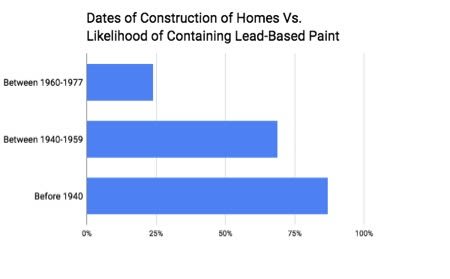Here's What You Need to Know about Lead

Image: Shutterstock
In its raw form, lead is one of the softest, most versatile metals found on Earth. The ancient Romans infused it into wines and culinary dishes to make them sweeter, while Johannes Gutenberg molded it into the movable type of the first printing press. Today, the mineral continues to be utilized for a huge array of purposes; however, over the millennia, we’ve noticed a relationship between lead exposure and certain cognitive ailments, such as memory loss and mood disorders, as well as serious physical maladies like stunted growth, infertility in men, and abnormal pregnancies in women. It’s a sobering thought, therefore, to learn that lead has played a key role in the very foundation of the cities and houses we live in.
By the time the dangers of lead poisoning became widely understood, untold miles of lead pipes had already been laid to transport our population’s water and gas supply. The only option that government officials were left with, other than restricting future use of lead pipes, was to inform the public about the dangers of lead exposure. Inevitably, though, urban areas can experience a public health crisis when lead from one of these antiquated sources contaminates an air or water supply. This is precisely what happened earlier this year within our own Portland Public School system, when tests revealed that the lead levels in the water supply of multiple schools far exceeded the numbers that federal regulations allow.
Equally as significant is our country’s use of lead paint. The federal government banned lead-based paint in 1978, but if your home or workplace predates the law, there is a good chance it has lead paint, according to the EPA. For this reason, those of us that live in older buildings have more reason to educate ourselves about the dangers of lead.

Image: Webb Wright
After realizing the ubiquity of lead-based products, it’s natural to worry about your home’s walls and water. If we are going to continue living in a city laid with foundations of lead, then the best and most responsible thing to do is to be aware of the ways to proactively avoid lead poisoning. Perry Cabot, a Senior Program Specialist with the Multnomah County’s Environmental Health Services program, offers the following recommendations:
- “Reach out to professionals like the Multnomah County Leadline or the Oregon Health Authority Lead Program and share your concerns and ask questions.”
- “Visit the Leadline web site and become informed and increase your awareness of local resources.”
- “Consider attending a free lead poisoning prevention workshop with the Community Energy Project and receive free testing and cleaning resources.”
- “Speak with your doctor about having your baby tested.”
- “Be sure to ask your contractor if they have the required lead training certification and licensing from the state before hiring them to do work on your home.”
- “Be proactive and informed!”




